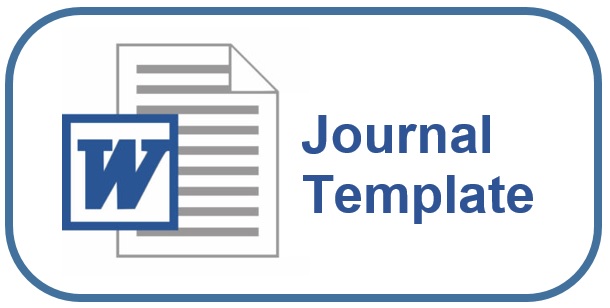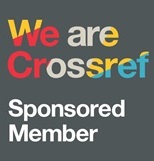Analisis Keterampilan Abad ke-21 di STT Makedonia
DOI:
https://doi.org/10.36277/abdimasuniversal.v4i2.234Keywords:
Skills, 21st Century, indicator, questionnaireAbstract
21st century skills are very important to keep pace with the fast progress of science and technology. These skills must be mastered by students who will enter and interact directly with the community. The target of this community service is to see and assess the 21st century skills of Macedonian Theological College students which will be used as material for socialization to students. The total sample in this community service amounted to 28 students by filling out the questions asked in the questionnaire. Filling out this questionnaire includes five factors that become indicators, namely knowledge and technology literacy skills, critical thinking and solving skills, entrepreneurship and innovation skills, social responsibility and leadership skills, and career awareness. Assessment of 21st century skills will make it easier for educators to assist students in guiding and directing students to continue to train themselves and improve mastery of 21st century skills. Then the results of this study can be used as an illustration of 21st century skills at the Macedonian Theological College. The results found in this community service illustrate that Macedonian Theological College students have 21st century skills in a good category (Mean = 76.77).
Downloads
References
Agmita, N., Suyana, I., Feranie, S., (2021). Desain LKPD Berbasis Masalah Untuk Melatih Keterampilan Abad 21. JoTaLP: Journal of Teaching and Learning Physics, 6(2), 90-99. http://doi.org/10.15575/jotalp.v6i2.10984.
AlHouli, A. I., & Al-Khayatt, A. K. A. (2020). Assessing the Soft Skills Needs of Teacher Education Students. International Journal of Education and Practice, 8(3), 416–431. https://doi.org/10.18488/journal.61.2020.83.416.431.
Allen, K. A., Kern, P. Vella-Brodrick, D., & Waters, L. (2017). School Values: A comparison of academic motivation, mental health promotion, and school belonging with student achievement. Educational and Developmental Psychologist, 34(1), 31-47. https://doi.org/10.1017/edp.2017.5.
Azwarini, F. M. (2022). Peran Guru Indonesia Dalam Menghadapi Tantangan Dalam Pembelajaran Abad 21. https://doi.org/10.31237/osf.io/nqcwf.
Cevik, M., & Senturk, C. (2019). Multidimensional 21st century skills scale: Validity and reliability study. Cypriot Journal of Educational Sciences, 14(1), 11–28. https://doi.org/10.18844/cjes.v14i1.3506.
Jufri, A. W., Ramdani, A., Gunawan, G., Bachtiar, I., & Wildan, W. (2018). Peningkatan Kompetensi Guru IPA Kota Mataram dalam Memfasilitasi Penguasaan Keterampilan Abad Ke 21 Siswa SMP. Jurnal Pengabdian Magister Pendidikan IPA, 1(1). https://doi.org/10.29303/jpmpi.v1i1.207.
Kebritchi, M., Lipschuetz, A. and Santiague, L. (2017) 'Issues and Challenges for Teaching Successful Online Courses in Higher Education: A Literature Review', Journal of Educational Technology Systems, 46(1), pp. 4-29. https://doi.org/10.1177/0047239516661713
Kennedy, T.J., Sundberg, C.W. (2020). 21st Century Skills. In: Akpan, B., Kennedy, T.J. (eds) Science Education in Theory and Practice. Springer Texts in Education. Springer, Cham. https://doi.org/10.1007/978-3-030-43620-9_32.
Markuszewska, I., Tanskanen, M. & Vila Subirós, J. (2018). New Ways to Learn Geography – Challenges of the 21st Century. Quaestiones Geographicae, 37(1) 37-45. https://doi.org/10.2478/quageo-2018-0004.
Nurafiah, V., Utari, S., & Liliawati, W. (2018). Profil keterampilan abad 21 siswa sma pada project-based learning (PjBL) materi tegangan permukaan. WaPFi (Wahana Pendidikan Fisika), 4(2), 134-140. https://doi.org/10.17509/wapfi.v4i2.20176.
Paquette, G., Marino, O. & Bejaoui, R. A (2021) new competency ontology for learning environments personalization. Smart Learn Environ. 8, 16. https://doi.org/10.1186/s40561-021-00160-z.
Pramudita, I., Praherdhiono, H., & Adi, E. (2021). Studi Keterampilan Abad 21 Mahasiswa Dalam Memilih Peminatan. JKTP: Jurnal Kajian Teknologi Pendidikan, 4(3), 251-259. doi: http://doi.org/10.17977/um038v4i32021p251.
Rahmawati, I., & Salehudin, M. (2022). Pengaruh Penggunaan Model Pembelajaran Abad 21 Terhadap Kemampuan Kognitif Peserta Didik Sekolah Dasar. EDUSAINTEK: Jurnal Pendidikan, Sains Dan Teknologi, 9(2), 404–418. https://doi.org/10.47668/edusaintek.v9i2.461.
Rosnaeni (2021) Karakteristik dan Asesmen Pembelajaran Abad 21 Jurnal Basicedu 5(5), 4334-4339, doi: https://doi.org/10.31004/basicedu.v5i5.1548.
S. I. Jung et al (2016) The effect of smartphone usage time on posture and respiratory function. Journal of Physical Therapy Science. Vol. 28, p. 186. doi: https://doi.org/10.1589/jpts.28.186.
Sugiyono. (2013). Metodelogi Penelitian Kuantitatif, Kualitatif Dan R&D. Bandung: ALFABETA.
Sylvia, I., Anwar, S., & Khairani, K. (2019). Pengembangan Instrumen Penilaian Autentik Berbasis Pendekatan Authentic Inquiry Learning Pada Mata Pelajaran Sosiologi di Sekolah Menengah Atas. Jurnal Socius: Journal Of Sociology Research And Education, 6(2), 103-120. doi: https://doi.org/10.24036/scs.v6i2.162.
Yulianda Putri Rahmawati, & Mohammad Salehudin. (2021). Optimalisasi pembelajaran abad 21 pada SMP dan SMA. Journal of Instructional and Development Researches, 1(3), 112-122. https://doi.org/10.53621/jider.v1i3.67.
Zhang, Z. & Zhang, Y., (2022) Research on Effective Strategies of College Physical Education Interactive Teaching Based on Machine Learning. Applied Bionics and Biomechanics (3):1-8. https://doi.org/10.1155/2022/1843514.
Zubaidah, S. (2019). Pendidikan Karakter Terintegrasi Keterampilan Abad Ke-21. Jurnal Penelitian Dan Pengkajian Ilmu Pendidikan: E-Saintika, 3(2), 1–24. https://doi.org/10.36312/e-saintika.v3i2.125.





















